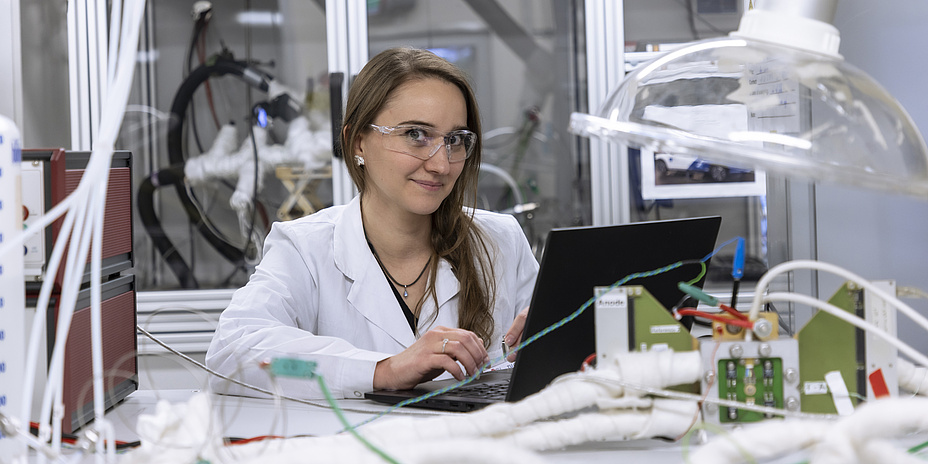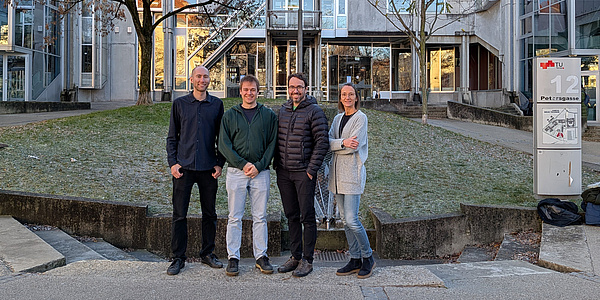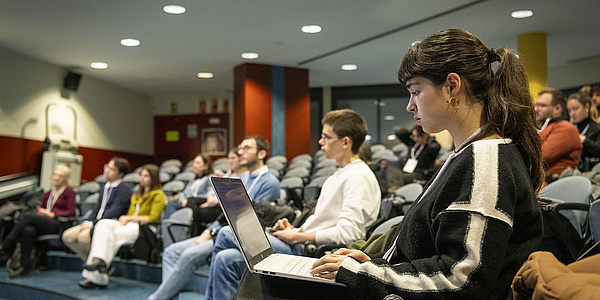Merit Bodner: Focusing on the Ageing of Fuel Cells

“I’ve always liked technical subjects,” says Merit Bodner about her past. “That’s why the choice was easy for me.” The 33-year-old’s journey to technology had been mapped out for a long time. However, for a long time she was not sure which branch suited her best. She even considered mechanical engineering. In the end, she decided to do a Bachelor’s degree in chemistry and a Master’s degree in technical chemistry. For her PhD, she focused on chemistry and process engineering. A decision that the young researcher is happy with today: “I can’t imagine doing anything else.”
At TU Graz, Merit Bodner holds a tenure track position in the Field of Expertise Mobility & Production and is assistant professor at the Institute of Chemical Engineering and Environmental Technology.
In her Master’s thesis, the native of Graz was already investigating fuel cells. But only those that are designed for operation with ethanol. “This was an area of research that was very far from application,” she says. “But it is important to me not only to do research for the sake of science, but also to be able to make a concrete contribution. I really want to make a difference in the field of green technologies.”
When fuel cells age
Today, Bodner specializes in the service life of fuel cells and their ageing and carries out research on questions such as: How can the service life of a fuel cell be increased? And how can efficiency be raised? How are both influenced by different materials and conditions? “I find this topic so interesting precisely because you can look at it from so many angles. On the one hand, it is important to understand the scientific principles. On the other, application-specific topics are also relevant, such as determining the suitability of materials, developing methods for diagnostics and optimizing operating strategies.” She is currently working on all aspects of the life of fuel cells in the HyTechonomy project – their service life, ageing and also storage capacities.
Merit Bodner was recently awarded the Young Scientist Award in the category “hydrogen usage” for her work at the EU Hydrogen Week in Brussels.
At the same time, she is working in the AlpeDHues project on how to determine the ageing of fuel cells, and for this she first has to find out how to measure it. In further work, Bodner devotes herself to the carbon paper used in fuel cells. “Most research is aimed at materials that are electrochemically active, but not at the carbon paper. But this is just as important and has a significant impact on the performance and service life of fuel cells.”
This research area is anchored in the Field of Expertise “Mobility & Production”, one of five strategic foci of TU Graz.
You can find more research news on Planet research. Monthly updates from the world of science at Graz University of Technology are available via the research newsletter TU Graz research monthly.
Kontakt
Merit BODNER
Ass.Prof. Dipl.-Ing. Dr.techn. BSc
Institute of Chemical Engineering and Environmental Technology
Inffeldgasse 25c
8010 Graz
Phone: +43 316 873 4977
merit.bodner@tugraz.at




